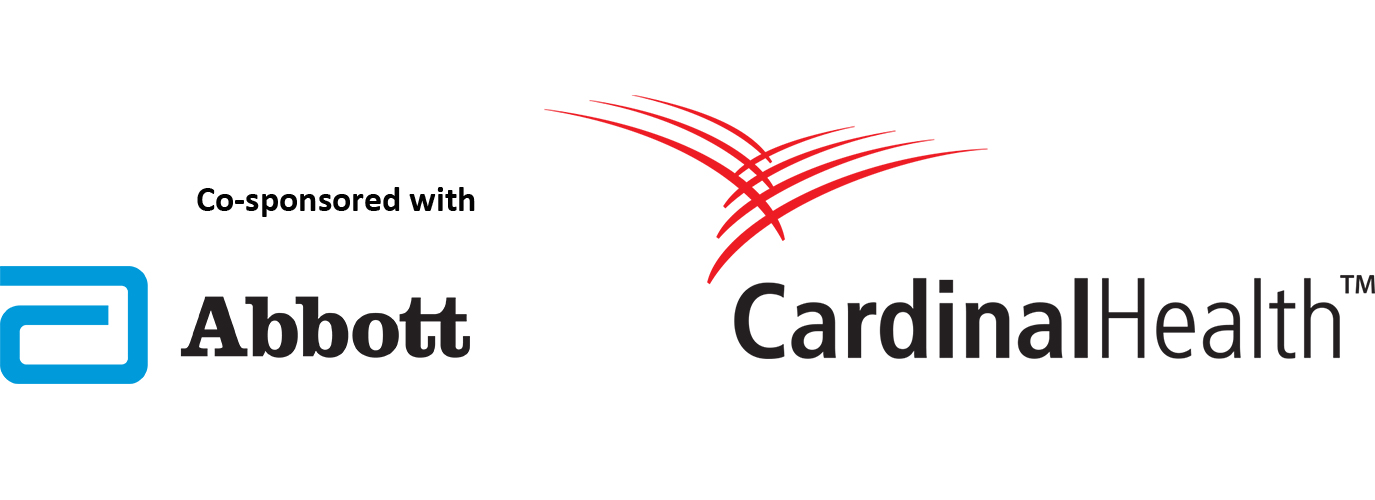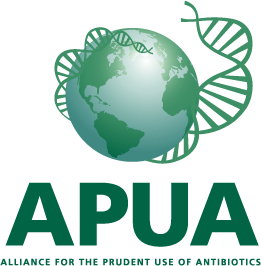Learning at your convenience. On your schedule.
|
|
|||
|
CONTINUING MEDICAL EDUCATION Learning at your convenience. On your schedule. |
|||
|
| Access On-Demand Webinars by Category | |||||||||||||||||||||
| Access the On-Demand Program Guide with listing of educational webinars organized by category. |
|
||||||||||||||||||||
|
Collaboration in Extending
Respiratory Testing to the Emergency Department Live Event: Tuesday, September 17 2024 | 11:00 AM - 12:00 PM Eastern Time P.A.C.E.® credit available until March 17, 2025 Florida Laboratory CE Credit available |
|||||||||||||||||||||
|
Join experts from the Emergency Department (ED) as they share real-world
experience with clinical and operational examples of patients exhibiting
symptoms related to respiratory illness. In this session, you will gain
an exclusive perspective on respiratory testing in the ED. The webinar
speakers will discuss strategies for influencing and implementing rapid
testing at the point of care for respiratory infectious diseases, such
as COVID-19, Influenza, RSV, and Group A Strep. The webinar will: • Describe apparent (and less apparent) factors that affect care in the ED • Analyze the role of timely diagnostic test results on patients, ED staff, and the healthcare system • Examine approaches and evidence for delivering results to decrease time to targeted patient care and infection control decisions • Assess strategies where ED influence and laboratory collaboration helped facilitate the implementation of POC testing  |
Presenters:
|
||||||||||||||||||||
|
Ending the HIV Epidemic: Partnering
for Success Live Event: Thursday, November 30, 2023 | 1:00 - 2:00 PM Eastern Time P.A.C.E.® credit available until November 30, 2024 Florida Laboratory CE Credit available |
|
||||||||||||||||||||
|
On World AIDS Day, please join for an update on HIV successes and
opportunities to eliminate the HIV epidemic. Key areas of focus include
the importance of testing, the continuum of care for HIV patients, and
impact when all groups involved collaborate effectively. All healthcare
settings and community-based organizations are encouraged to take part
in this session. The webinar will: • Review risk factors and clinical presentations suggestive of HIV • Discuss practical methods to implement and improve access for HIV screening • Examine options for testing, treatment and prevention • Assess strategies for linking and keeping patients in care |
Presenters:
|
||||||||||||||||||||
|
Know the Pneumonia: Urinary Antigen
Testing in Patient Care Live Event: Thursday, November 9, 2023 | 1:00 - 2:00 PM Eastern Time P.A.C.E.® credit available until November 9, 2024 Florida Laboratory CE Credit available |
|
||||||||||||||||||||
|
Join this session for insights on improving the quality of care of
patients with pneumonia. Experts will discuss the impact of this deadly
infection and current gaps in identifying Legionella and Streptococcus
(S.) pneumoniae. Practical applications of integrating urinary antigen
testing (UAT) in patient scenarios will be explored, including an
evidence-based review of mortality and antibiotic stewardship
improvements achieved with UAT. The webinar will: • Evaluate the impact of pneumonia and risks for severe illness • Examine gaps and potential delays in the diagnosis of pneumonia and quality measures to enhance patient care • Review the identification of Legionella and S. pneumoniae with UAT • Discuss practical examples where UAT testing supported improved patient outcomes through timely identification |
Presenter:
|
||||||||||||||||||||
|
Mitigating RSV and Influenza with
Rapid Testing in Adults Live Event: Wednesday, October 18, 2023 | 1:00 - 2:00 PM Eastern Time P.A.C.E.® credit available until October 18, 2024 Florida Laboratory CE Credit available |
|
||||||||||||||||||||
|
Join this program for a timely update on respiratory infections and
mitigation strategies in adult populations, particularly those at
greater risk of severe illness and complications. A key element focuses
on rapid testing with expert perspectives on test types, clinical
utility, and improved testing efficiencies, including diagnostic
stewardship. The webinar will: • Summarize epidemiological trends and risk factors for severe RSV and Influenza infections • Review challenges and impact of RSV and Flu infections in acute and congregate care settings • Describe rapid test technology types and differences • Share perspectives on rapid test platform efficiency and diagnostic stewardship strategies within current healthcare constraints |
Presenter:
|
||||||||||||||||||||
|
Stewardship and Quality in Point of
Care Respiratory Testing Live Event: Thursday, August 17, 2023 | 1:00 - 2:00 PM Eastern Time P.A.C.E.® credit available until February 17, 2024 Florida Laboratory CE Credit available |
|
||||||||||||||||||||
|
Join experts as they examine goals and benchmarks for assessing quality
within the laboratory and at the point of care. Gain new insights on
quality measures and methods for laboratory and clinical teams to
improve antibiotic and diagnostic stewardship related to respiratory
infections. Learn how healthcare teams can collaboratively evaluate and
implement new processes with quality in mind. The webinar will: • Evaluate factors that impact quality improvement programs including patient satisfaction, healthcare-associated infections, and antibiotic usage • Analyze quality improvement strategies that include the use of rapid respiratory testing at the point of care • Assess case examples and evidence that led to improved patient care across a variety of healthcare settings • Identify areas of collaboration between the laboratory and clinical team to help improve antibiotic and diagnostic stewardship utilizing point of care respiratory testing  |
Presenters:
|
||||||||||||||||||||
|
Making Progress: HIV Testing and Care
Strategies Live Event: Tuesday, June 27, 2023 | 1:00 - 2:00 PM Eastern Time P.A.C.E.® credit available until June 27, 2024 Florida Laboratory CE Credit available |
|
||||||||||||||||||||
|
Join this session for an update on eliminating the HIV epidemic and
steps healthcare and community-based sites can take to help achieve the
CDC’s 2030 HIV goals. Hear practical care solutions, especially for
individuals with HIV risk factors, to expedite testing, reduce loss to
follow-up, avoid transmissions, and take part in this important national
HIV initiative. The webinar will: • Summarize HIV epidemiology in the U.S. and the CDC’s initiative to eliminate the HIV epidemic • Describe methods to diagnose, treat and prevent HIV, with an emphasis on at-risk populations • Explain the indications for HIV testing and the importance of linkage to care on patient and community outcomes • Identify resources for healthcare and community-based sites to help increase access to HIV testing and reduce transmissions |
Presenter:
Moderator:
|
||||||||||||||||||||
|
Collaboration in Extending
Respiratory Testing to the Emergency Department Live Event: Thursday, May 11, 2023 | 1:00 - 2:00 PM Eastern Time P.A.C.E.® credit available until May 11, 2024 Florida Laboratory CE Credit available |
|
||||||||||||||||||||
|
Please join this session for an insider's view of respiratory testing in
the Emergency Department (ED). Experts from the ED will share real-world
experience with clinical and operational examples of patients presenting
with symptoms related to respiratory illness. Our speakers will also
discuss strategies for influencing and implementing rapid testing at the
point of care for respiratory infectious diseases, such as COVID-19,
Influenza, RSV, and Group A Strep. The webinar will: • Describe apparent (and less apparent) factors that affect care in the ED • Analyze the role of timely diagnostic test results on patients, ED staff, and the healthcare system • Examine approaches and evidence for delivering results to decrease time to targeted patient care and infection control decisions • Assess strategies where ED influence and laboratory collaboration helped facilitate the implementation of POC testing |
Presenters:
|
||||||||||||||||||||
|
Tri-demic Lessons and Targeted
Testing: Efficient Use of Rapid Testing for Expedited Patient Care Live Event: Tuesday, April 4, 2023 | 1:00 - 2:00 PM Eastern Time P.A.C.E.® credit available until April 4, 2024 Florida Laboratory CE Credit available |
|
||||||||||||||||||||
|
The unpredictable presence of multiple respiratory viruses created new
diagnostic challenges across our society, particularly in time-sensitive
healthcare settings. Rapid identification of respiratory infection
etiology was essential to inform isolation strategies and expedite
appropriate patient care. Join this webinar for tri-demic lessons
learned related to clinical assessments, epidemiology and the use of
rapid tests. Clinical and laboratory experts will also share
perspectives on optimizing point of care testing for COVID-19,
Influenza, RSV and Group A Strep across health systems. The webinar will: • Discuss lessons learned from the 2022-2023 tri-demic and perspectives to prepare for the next “season" • Differentiate rapid test technologies and targeted test strategies based on setting, clinical assessment and disease epidemiology • Examine the process, support, and mechanisms involved in establishing and adapting point of care testing programs • Summarize evidence describing the impact of rapid testing on operations, antibiotic stewardship, and other outcomes |
Presenters:
|
||||||||||||||||||||
|
Influenza: Expediting the Work-Up and
appropriate Treatment in Primary Care Live Event: Thursday, February 9, 2023 | 1:00 - 2:00 PM Eastern Time P.A.C.E.® credit available until February 9, 2024 Florida Laboratory CE Credit available |
|
||||||||||||||||||||
|
Join this session for a clinical perspective on primary care best
practices and approaches to streamline the evaluation and care of
patients with influenza. Hear strategies for the use of rapid testing to
improve workflow efficiencies and the appropriate use of antibiotics and
antivirals. Gain perspective based on a personal story describing the
impact of influenza. The webinar will: • Review the status of the current respiratory season and the latest health and vaccination data • Explore the impact of influenza on primary care, the community and families • Review rapid influenza testing guidelines and utility in the primary care • Examine the application of rapid testing and other resources to mitigate influenza transmission and improve patient outcomes1 1Uyeki TM, et al. Clinical Practice Guidelines by the Infectious Diseases Society of America: 2018 Update on Diagnosis, Treatment, Chemoprophylaxis, and Institutional Outbreak Management of Seasonal Influenza. Clin Infect Dis. 2019 Mar 5;68(6):e1-e47. |
Presenters:
|
||||||||||||||||||||
|
HIV Screening: Prevention, Rapid
Detection and Linkage to Care Live Event: Thursday, January 19, 2023 | 1:00 - 2:00 PM Eastern Time P.A.C.E.® credit available until January 19, 2024 Florida Laboratory CE Credit available |
|
||||||||||||||||||||
|
Hear the latest CDC guidance and new goals to eliminate the human
immunodeficiency virus (HIV) epidemic by 2030. Learn the value of
prevention, importance of increasing HIV status awareness and early
diagnosis. Strategies to simplify screening, reduce and streamline
patient follow-up, and improve linkage to care will also be shared. Now
is the time to help achieve the CDC's HIV elimination goal. The webinar will: • Review the status of HIV infections, drivers of transmissions and CDC guidance to eliminate the epidemic • Describe strategies to incorporate HIV screening and positively impact patient and community outcomes • Discuss test types and rationale for rapid HIV testing • Examine HIV prevention and the importance of early detection and treatment |
Presenter:
|
||||||||||||||||||||
|
2022: Rapid Testing for Infectious
Diseases – A Year in Review
P.A.C.E.® credit available until December 16, 2023 Florida Laboratory CE Credit available |
|
||||||||||||||||||||
|
2022 has been another rapidly evolving year in infectious diseases.
View this recorded on-demand Year in Review as Abbott Scientific Affairs recaps 2022 educational content focused on the impact of rapid point of care testing for infectious diseases in time sensitive areas. This discussion includes timely year-end updates for respiratory infections and HIV with testing guidance, evidence review and answers to many unanswered questions. The webinar will: • Review a year of key learnings and the evolution of testing strategies related to infectious diseases • Discuss the impact of the 2022-2023 respiratory season and the HIV epidemic on the community and healthcare system • Summarize presented data related to rapid respiratory and HIV testing and their association with antibiotic stewardship, infection control and patient outcomes • Examine the rapid diagnostic guidelines and featured questions from our year of 2022 webinars |
Presenters:
|
||||||||||||||||||||
|
Influenza 2022-2023: Rapid Assessment and Treatment Strategies Live Event: Thursday, November 17, 2022 | 1:00 - 2:00 PM Eastern Time P.A.C.E.® credit available until May 17, 2023 Florida Laboratory CE Credit available |
|
||||||||||||||||||||
|
Join this session for the latest insights on global influenza activity
and predictions for the upcoming respiratory season in the Northern
Hemisphere. Influenza diagnostic guidelines and quality initiatives
associated with antimicrobial stewardship and care efficiencies will be
presented. Leaders and members of antibiotic stewardship committees and
healthcare professionals involved in time sensitive and other acute care
areas are encouraged to attend. The webinar will: • Discuss influenza risks and the importance of an early diagnosis in time-sensitive areas • Review IDSA guidelines for diagnosing influenza • Examine accuracy and technology differences between antigen and molecular tests • Explore the impact of an early and accurate influenza diagnosis on quality of care, infection control, and stewardship for antibiotics and antivirals
|
Presenters:
|
||||||||||||||||||||
|
Isolation, Efficiency and Antimicrobial Stewardship in Emergency
Medicine for Respiratory Infectious Diseases Live Event: Thursday, October 20, 2022 | 11:00 AM - 12:00 PM Eastern Time P.A.C.E.® credit available until October 20, 2023 Florida Laboratory CE Credit available - This program has been approved by the American Association of Critical-Care Nurses (AACN) for 1.00 CERPs, Synergy CERP Category A, File number 24343. Approval refers to recognition of continuing education only and does not imply AACN approval or endorsement of the content of this educational activity, or the products mentioned. |
|
||||||||||||||||||||
|
Join this ED-focused clinical assessment on the impact of rapid testing
in emergency care. This evidence-based session will include efficiencies
achieved when results are available in time for patient management and
infection control decisions. Isolation, antimicrobial stewardship and
workflow efficiencies in the emergency department will be examined. The webinar will: • Discuss the importance of an early diagnosis in the emergency department • Review testing guidelines for respiratory infectious diseases • Examine differences in antigen and molecular test technology • Explore evidence detailing the impact of early and accurate diagnosis on quality of care, including infection control and stewardship for antibiotics and antivirals |
Presenters:
|
||||||||||||||||||||
|
2022/2023 Respiratory Season: New Diagnostic Challenges and
Strategies for Antimicrobial Stewardship Live Event: Wednesday, September 21, 2022 | 11:00 AM - 12:00 PM Eastern Time P.A.C.E.® credit available until September 21, 2023 Florida Laboratory CE Credit available - This program has been approved by the American Association of Critical-Care Nurses (AACN) for 1.00 CERPs, Synergy CERP Category A, File number 24263. Approval refers to recognition of continuing education only and does not imply AACN approval or endorsement of the content of this educational activity, or the products mentioned. - This program is approved by the American Association for Respiratory Care (AARC) for 1.0 continuing education contact hour for respiratory therapists. |
|
||||||||||||||||||||
|
Gain the latest insights on respiratory infections and related rapid
tests aimed at expediting appropriate isolation decisions and antiviral
treatments. Be informed on the technology differences in diagnostic test
methods and hear use cases on testing protocols focused on efficient
patient management and quality initiatives, including antimicrobial
stewardship. The webinar will: • Discuss circulating respiratory infections and perspectives on the upcoming respiratory season • Describe testing for respiratory infections, including protocols and workflows to streamline prompt and efficient care • Review methodology differences of rapid antigen and rapid molecular tests • Examine evidence where timely results impacted clinical decision making, antibiotic and antiviral stewardship, infection control and workflow |
Presenters:
|
||||||||||||||||||||
|
Group A Strep Pharyngitis: Expert Perspectives on Rapid Testing
and Antimicrobial Stewardship Live Event: Thursday, September 15, 2022 | 11:00 AM - 12:00 PM Eastern Time P.A.C.E.® credit available until September 15, 2023 Florida Laboratory CE Credit available |
|
||||||||||||||||||||
|
Join this panel discussion on Group A Strep (GAS) pharyngitis. Hear the
latest updates on key topics, including clinical testing guidelines,
perspectives on test methodologies, and practical testing protocols.
Recommendations aimed at improving quality of care, workflow
efficiencies, and antibiotic stewardship will be shared. The webinar will: • Discuss the latest diagnostic guidelines for GAS pharyngitis • Assess clinical challenges of GAS pharyngitis diagnosis and antimicrobial stewardship • Review rapid test methods (antigen and molecular tests) and practical utility • Examine evidence when results are received in time for clinical decision making and prompt patient care |
Presenters:
|
||||||||||||||||||||
|
Clinical and Practical Rationale for Rapid Testing in
Respiratory Syncytial Virus (RSV) Live Event: Thursday, August 4, 2022 | 1:00 - 2:00 PM Eastern Time P.A.C.E.® credit available until August 4, 2023 Florida Laboratory CE Credit available - This program has been approved by the American Association of Critical-Care Nurses (AACN) for 1.00 CERPs, Synergy CERP Category A, File number 24223. Approval refers to recognition of continuing education only and does not imply AACN approval or endorsement of the content of this educational activity, or the products mentioned. - This program is approved by the American Association for Respiratory Care (AARC) for 1.0 continuing education contact hour for respiratory therapists. |
|
||||||||||||||||||||
|
Join this session for an update on respiratory syncytial virus (RSV), a
highly contagious respiratory infection that can quickly spread among
infants and the elderly in healthcare and other congregate care
settings. Speakers will share expert perspectives on RSV transmission,
including reducing exposure to uninfected individuals and mitigating
infections, particularly in those at risk of severe RSV disease. Best
practices for reducing healthcare acquired infections and improving
antibiotic stewardship in individuals with acute respiratory illness
will also be presented. The webinar will: • Describe RSV patient management and infection control challenges • Review the latest diagnostic, treatment and prevention guidelines for RSV • Discuss other endpoints associated with a rapid diagnosis such as infection control, antibiotic stewardship and workflow efficiencies • Examine rapid antigen and molecular tests for RSV, technology differences and perspectives on testing protocols |
Presenters:
|
||||||||||||||||||||
|
A Call To Action: Rapid HIV Testing in Primary and Emergency
Care Live Event: Tuesday, May 31, 2022 | 1:00 - 2:00 PM Eastern Time P.A.C.E.® credit available until May 31, 2023 Florida Laboratory CE Credit available |
|
||||||||||||||||||||
|
Participate in this important update on the early diagnosis and measures
to increase linkage to care of individuals with acute human
immunodeficiency virus (HIV) infection. Hear an update on the status of
HIV infections and measures in the primary and emergency care settings
to help reduce the one-third of patients screened for HIV that fail to
return for a follow-up visit to learn test results.1 References: 1 Greenwald JL, et al. A rapid review of rapid HIV antibody tests. Curr Infect Dis Rep. 2006 Mar. 8(2):125-31. The webinar will: • Review HIV infections and recommendations for reducing risk and transmissions • Examine the role of primary and urgent care providers in supporting HIV testing and reductions in HIV transmissions • Discuss testing methodologies and protocols for incorporating rapid HIV testing into routine practice • Evaluate care pathways and resource enhancements to positively impact patient and community outcomes |
Presenter: Larissa May, MD, MSPH, MSHS  Professor, Emergency Medicine Director, ED and Outpatient Antibiotic Stewardship Medical Director, Learning Health System Hub UC Davis Health Antibiotic Stewardship Lead VA Northern California Healthcare System |
||||||||||||||||||||
|
A Laboratory Update on Respiratory Viruses and Rapid Testing Live Event: Wednesday, April 27, 2022 | 1:00 - 2:00 PM Eastern Time P.A.C.E.® credit available until April 27, 2023 Florida Laboratory CE Credit available |
|
||||||||||||||||||||
|
Celebrate lab week with an engaging microbiology perspective on
respiratory viruses. Dr. Moore will share his insights on viral
challenges, variants and the application of rapid tests across
healthcare settings. He will also discuss the important role of the
laboratory in expediting rapid delivery of test results and best
practices for maintaining high quality rapid molecular test results. The webinar will: • Discuss latest updates regarding upper respiratory viruses and variants • Review current testing recommendations for symptomatic and asymptomatic populations • Describe methods and quality measures for rapid testing in time-sensitive care settings • Examine the impact of rapid respiratory testing in improving care, operations and workflow efficiencies |
Presenter: Norman Moore, PhD Director, Infectious Diseases Scientific Affairs Abbott Rapid Diagnostics  Dr. Moore received his bachelor’s degree from Dartmouth and his PhD in microbiology from the University of New Hampshire. He has eight US and 31 non-US patents along with numerous publications and presentations, such as the CLSI’s Point-of-Care Testing for Infectious Diseases 1st Edition. |
||||||||||||||||||||
|
An Update on Community Acquired Pneumonia (CAP) Diagnosis and
the Impact on Outcomes Live Event: Monday, April 25, 2022 | 1:00 - 2:00 PM Eastern Time P.A.C.E.® credit available until April 25, 2023 Florida Laboratory CE Credit available |
|
||||||||||||||||||||
|
Join an updated discussion on community acquired pneumonia (CAP) and two
pathogenic etiologies - Streptococcus pneumoniae and
Legionella. S.
pneumoniae is the leading cause of CAP1,2
and Legionella is a pathogen that has increased 9-fold in the
U.S. since 20003 and causes severe
pneumonia with high rates of mortality. Dr. Anzueto will share his expert clinical perspectives in review of the latest IDSA/ATS testing guidelines, provide an evidence-based examination of data supporting urinary antigen testing (UAT) and discuss the value of laboratory medicine in CAP patient management. References: 1Ramirez JA, File TM, and Bond S. Overview of community-acquired pneumonia in adults. UpToDate. December 28, 2020. https://www.uptodate.com/contents/overview-of-community-acquired-pneumonia-in-adults/print. 2Jain S, et al. Community-Acquired Pneumonia Requiring Hospitalization among U.S. Adults. N Engl J Med 2015;373:415-27. 3Centers for Disease Control and Prevention. Legionnaires’ Disease History and Patterns. The webinar will: • Describe the relationship of COVID-19 and pneumonia and the associated public health risks • Examine experiences and best practices for evaluating and managing COVID-19 patients with pneumonia • Explain the guidance and practical clinical value of UAT, including mortality reduction and antibiotic stewardship • Discuss UAT performance characteristics and potential value related to laboratory workflow in times of strained respiratory testing resources |
Presenter: Antonio Anzueto, MD Professor, Department of Medicine, University of Texas San Antonio Chief, Pulmonary Section, The South Texas Veterans Health Care System .png) Dr Anzueto currently serves on the editorial board of the American Journal of Respiratory and Critical Care Medicine, American College of CHEST Physicians Journal, the COPD Journal, and the Respiratory Research Journal. |
||||||||||||||||||||
|
Streptococcal Pharyngitis: The Case for a Rapid, Accurate
Diagnosis and Improved Care Live Event: Thursday, April 7, 2022 | 10:00 - 11:00 AM Eastern Time | 17:00 - 18:00 Central European Time P.A.C.E.® credit available until April 7, 2023 Florida Laboratory CE Credit available This program has been approved by the American Association of Critical-Care Nurses (AACN) for 1.00 CERPs, Synergy CERP Category A, File number 24104. Approval refers to recognition of continuing education only and does not imply AACN approval or endorsement of the content of this educational activity, or the products mentioned. |
|
||||||||||||||||||||
|
Join this global webinar focused on Group A Strep (GAS) pharyngitis
diagnostics and patient care. This program includes peer-reviewed
evidence and perspectives on GAS pharyngitis testing guidelines,
protocols and technology to help improve the quality and efficiency of
patient care. Antibiotic stewardship, the role of rapid testing and
efforts to minimize antimicrobial resistance are also discussed. The webinar will: • Review the challenges associated with a rapid diagnosis and treatment of Group A Strep (GAS) pharyngitis • Evaluate the latest guidelines and evidence supporting a timely and accurate GAS pharyngitis diagnosis • Discuss the importance and value of rapid testing including practical experience using rapid antigen tests and rapid nucleic acid amplification tests (NAATs) in time-sensitive, point of care settings • Examine the impact of test results on clinical decision making, patient care and operational workflows including the global burden of bacterial antimicrobial resistance |
Presenter: Stanford T. Shulman, MD Stanford T. Shulman, MDVirginia H. Rogers Professor of Pediatric Infectious Diseases, Northwestern University Feinberg School of Medicine Chief Emeritus, Division of Infectious Diseases Ann & Robert H. Lurie Children’s Hospital of Chicago |
||||||||||||||||||||
|
The Important Fight Against Flu: Prevention, Rapid Testing and
Timely Antiviral Use Live Event: Thursday, February 17, 2022 | 1:00 - 2:00 PM Eastern Time P.A.C.E.® credit available until February 17, 2023 Florida Laboratory CE Credit available This program has been approved by the American Association of Critical-Care Nurses (AACN) for 1.00 CERPs, Synergy CERP Category A, File number 24044. Approval refers to recognition of continuing education only and does not imply AACN approval or endorsement of the content of this educational activity, or the products mentioned. |
|
||||||||||||||||||||
|
The fight against influenza transmissions and poor outcomes in those who
contract the disease has not yet been won. This educational program provides important insights on rapid diagnostics and best practices within health systems to improve the accuracy and speed of diagnosis, enhance antimicrobial stewardship and improve patient care. Measures and resources to prevent influenza will also be shared to better arm our front-line healthcare workers. The webinar will: • Assess the progression of respiratory season, health risks and vaccinations • Describe influenza testing guidelines, methods of rapid testing and utility in various clinical settings • Examine the impact of flu on healthcare systems, communities and families • Review protective measures and health system resources to heighten awareness and mitigate infections |
Presenters:
|
||||||||||||||||||||
|
COVID-19 Co-Infections: Best Practices for a Rapid Differential
Diagnosis in Pediatrics and Adults Live Event: Thursday, January 20, 2022 | 11:00 - 12:00 Eastern Time | 17:00 - 18:00 Central European Time P.A.C.E.® credit available until January 20, 2023 Florida Laboratory CE Credit available This program has been approved by the American Association of Critical-Care Nurses (AACN) for 1.00 CERPs, Synergy CERP Category A, File number 23988. Approval refers to recognition of continuing education only and does not imply AACN approval or endorsement of the content of this educational activity, or the products mentioned. |
|
||||||||||||||||||||
|
Concerned patients, parents and clinical staff benefit from a rapid
diagnosis when an individual is experiencing respiratory symptoms.
Isolation protocols and treatment decisions rely on an accurate
diagnosis to optimize resource use and improve antimicrobial
stewardship. Join this global webinar for real-world case reports on new and breakthrough infections and practical strategies being implemented in the pediatric and adult settings that help facilitate optimal care and workflow in time-sensitive care settings. The webinar will: • Assess the challenges in time sensitive care areas when patients present with respiratory symptoms • Review care pathways and clinical scenarios that require rapid clinical decisions and their impact on patient care and outcomes • Evaluate rapid testing methods and their utility in expediting clinical decisions and patient care • Examine peer-reviewed evidence and clinical cases that incorporate a rapid differential diagnosis |
Presenters:
|
||||||||||||||||||||
|
Latest Update on Initiating and Monitoring HIV Prevention
Therapy Across Healthcare Settings Live Event: Wednesday, December 1, 2021 | 1:00 PM - 2:00 PM ET P.A.C.E.® credit available until December 1, 2022 Florida Laboratory CE Credit available |
|
||||||||||||||||||||
|
The use of combination antiretroviral therapy (emtricitabine and
tenofovir disoproxil fumarate) for Pre-Exposure Prophylaxis (PrEP) is a
highly effective intervention for the prevention of HIV infection.
Assessing someone’s risk for HIV, initiating preventive therapy and
subsequent monitoring of these patients has significant implications for
these individuals as well as their partners, communities and healthcare
system at large. This accredited webinar will provide an expert perspective on the latest CDC/USPHS and U.S. Preventive Services Task Force recommendations regarding the role of healthcare professionals and their associates in PrEP initiation to reduce HIV infection rates and improve patient outcomes. The webinar will: • Review FDA-approved HIV pre-exposure prophylaxis (PrEP) and evidence-based recommendations for implementation • Describe recommendations for eligibility and baseline evaluation of patients before starting PrEP • Evaluate clinical protocols for individuals taking PrEP and resource enhancements to improve medication acquisition, adherence, and follow-up • Examine the role of community healthcare settings in providing PrEP to eligible clients • Discuss future therapies for HIV prevention including long-acting injectables |
Presenter: Jeffrey T. Kirchner, DO, FAAFP, AAHIVS Medical Director, Caring Communities Bloomsburg, Hazleton, and Wilkes-Barre Pennsylvania  Dr. Kirchner is currently the Medical Director for “Caring Communities” who provide STI testing, PrEP services, and HIV care at several clinical sites in rural Pennsylvania. Prior to this he was Chief Medical Officer of the American Academy of HIV Medicine (AAHIVM), served on the national board of AAHIVM, and was chairman of the Editorial Advisory board of the HIV Specialist magazine. |
||||||||||||||||||||
|
Expert Perspectives on Rapid Point of Care Testing for
Respiratory Infections Live Event: Wednesday, November 17, 2021 | 10:00 AM - 11:00 AM ET P.A.C.E.® credit available until November 17, 2022 Florida Laboratory CE Credit available This program has been approved by the American Association of Critical-Care Nurses (AACN) for 1.00 CERPs, Synergy CERP Category A, File number 23941. Approval refers to recognition of continuing education only and does not imply AACN approval or endorsement of the content of this educational activity, or the products mentioned. |
|
||||||||||||||||||||
|
One-size does not fit all across today's diverse and dynamic test
settings. From antigen to molecular tests and various use cases, rapid
test methods offer unique and overlapping utility, advantages and
disadvantages. Gain insights from this expert discussion on the
intersection of test settings with test methods to support clinical
needs while streamlining efficiencies and operational workflows. The webinar will: • Share insight on the adoption of rapid COVID-19 testing in the urgent care setting • Discuss best practices across respiratory illnesses and the unique impact of each test on patient care, workflow and antibiotic stewardship • Examine additional use cases where rapid antigen COVID-19 testing provides diagnostic and screening utility • Evaluate the experience and generated evidence from using rapid antigen testing in a clinical setting |
Presenters:
|
||||||||||||||||||||
|
Establishing Successful HIV Linkage to Care: Insights for Primary Care and Health System Professionals Live Event: Tuesday, November 2, 2021 | 1:00 PM - 2:00 PM ET P.A.C.E.® credit available until November 2, 2022 Florida Laboratory CE Credit available |
|
||||||||||||||||||||
|
Linkage to care for individuals with HIV is an important step in
mitigating infection transmission. This webinar focuses on the Primary Care setting and Health Systems where HIV awareness and best practices can have a significant impact on the community. Join this engaging discussion to hear invaluable recommendations and learn of resources to facilitate linkage to care programs for a wide range of healthcare professionals. The webinar will: • Describe HIV linkage to care and its importance in Primary Care • Discuss HIV Care Continuum gaps and opportunities • Examine CDC recommendations and evidence-based examples • Review the St. Louis journey to achieve HIV screening and linkage to care and associated patient and community outcomes • Share recommendations on implementing linkage to care in various settings |
Presenter: Tawnya Brown, MSW Vice President of Operations – Missouri Vivent Health  Tawnya has served the HIV community in St. Louis for 24 years and is currently the Vice President of Operations for Vivent Health in St. Louis. |
||||||||||||||||||||
|
The Unpredictable Respiratory Season: Influenza and COVID-19 Live Event: Tuesday, September 21, 2021 | 11:00 AM - 12:00 PM ET P.A.C.E.® credit available until September 21, 2022 Florida Laboratory CE Credit available |
|
||||||||||||||||||||
|
On the threshold of the 2021-2022 respiratory season, this timely update
centers on influenza A&B, the COVID-19 pandemic and steps healthcare
systems are taking to prepare for the upcoming (and uncertain)
respiratory season. The expert discussion will include evidence-based updates and practical experience regarding rapid testing across overlapping respiratory illnesses. From acute to ongoing vigilance, we will explore methods to accommodate various testing needs and use cases. The webinar will: • Review current influenza A&B and COVID-19 infections and variants • Summarize steps healthcare systems are taking to prepare for the upcoming (and uncertain) respiratory season • Describe use cases and testing scenarios for molecular and antigen testing — what works, when and where • Apply practical experience and evidence to the use of rapid influenza (and COVID-19) testing in improving efficiencies of care, operations and workflow |
Presenter: Sheldon
Campbell, MD, PhD Sheldon
Campbell, MD, PhDProfessor of Lab Medicine, Yale School of Medicine Associate Chief of Pathology and Lab, VA CT Healthcare System, USA Moderator:  Norman
Moore, PhD Norman
Moore, PhDDirector, Infectious Diseases, Scientific Affairs Abbott Rapid Diagnostics, USA |
||||||||||||||||||||
|
COVID-19 VARIANTS, VACCINES AND THE VALUE OF RAPID TESTING Live Event: Tuesday, July 27, 2021 | 10:00 - 11:00 AM ET | 4:00 - 5:00 PM CET P.A.C.E.® credit available until July 27, 2022 Florida Laboratory CE Credit available |
|
||||||||||||||||||||
|
As variants evolve, vaccination gaps persist, and mask measures relax,
diagnostic testing remains a cornerstone in the global fight against
COVID-19. This multi-disciplinary educational program will highlight
variant surveillance and testing protocols from Europe to the U.S. and
explore the imperative of COVID-19 testing protocols to optimize patient
care and public health readiness with an uncertain upcoming influenza
season. This event is the first in a 4-part educational webinar series: THE EVOLVING ROLE OF RAPID TESTING FOR COVID-19 & BEYOND In registering for the July event, you will be notified of upcoming program registration details. The webinar will: • Examine virus surveillance from the Abbott Virus Hunters, an expert team that is identifying, cataloging, and tracking evolving COVID-19 strains • Discuss the critical role of routine rapid testing in reducing the spread of SARS-CoV-2 and tracking highly contagious variants • Review practical considerations for testing protocols and use cases in the selection of rapid antigen and molecular testing • Identify the ways to manage simultaneous diagnostic demands of COVID-19 and Influenza |
Presenters:
|
||||||||||||||||||||
|
Mitigation and Testing Strategies for K-12 School Districts Live Event: Friday, July 23, 2021 | 12:00 - 12:45 PM ET Certificate of Attendance available until January 23, 2022 |
|
||||||||||||||||||||
|
In resuming on-site K-12 learning, COVID-19 variants and uncertain
health risks have heightened concerns across communities. This
educational webinar series includes the latest safety guidance for
in-person learning, provides an update on variants, and discusses the
impact of vaccinated and unvaccinated populations on SARS-CoV-2
transmission. The program will also provide examples of simple,
practical measures to prepare for and remain vigilant during the school
year. If you are a K-12 school administrator, superintendent or work in the Department of Health or Education, don’t miss this timely K-12 update. The webinar will: • Review the latest COVID-19 reports on infections, variants, vaccines and guidance for school systems • Discuss COVID-19 testing and monitoring strategies, including test methods, frequency of testing, speed of results, pooling and wastewater analysis • Examine testing solutions to mitigate transmission rates and to streamline documentation and notifications • Explore best-practices for implementation and management of simple and time efficient K-12 testing programs |
Presenter: Mara G. Aspinall, MBA Professor of Practice Co-Founder, Biomedical Diagnostics program, College of Health Solutions Arizona State University  Mara Aspinall is a healthcare industry leader and pioneer committed to active civic involvement. She is Managing Director and Co-Founder of BlueStone Venture Partners. Aspinall also leads the Health Catalysts Group, a consulting firm for HIT and Diagnostics, publishing the popular Health Catalysts Diagnostics Year in Review. |
||||||||||||||||||||
|
Variants, Vaccines and Reopenings:
An Expert Update on Rapid COVID-19 Testing Preparedness Live Event: Tuesday, March 16, 2021 | 1:00 - 2:00 PM ET P.A.C.E.® credit available until Sept. 16, 2021 Florida Laboratory CE Credit available |
|
||||||||||||||||||||
|
With increasing reports on variants, vaccines, test methods and relaxing
health mandates, the role of rapid COVID-19 testing continues to evolve.
Join a leading expert panel as they discuss how the latest developments in COVID-19 are affecting rapid testing strategies and site preparedness. This program is suited for clinicians, laboratories and procurement teams supporting time-sensitive testing that impact care, isolation, quarantine and back-to-life activities. The webinar will: • Discuss current status and impact of variants, vaccines and health mandates on clinical labs, acute care and primary care settings • Share rapid testing methods, strategies and related best practices for molecular and antigen tests • Describe key considerations to optimize the detection of COVID-19 in patients and community populations • Identify preparedness measures focused on accommodating current fluctuations in caseloads
|
Panelists:
|
||||||||||||||||||||
|
Community Acquired Pneumonia:
Diagnosis and Treatment During the COVID-19 Era Live Event: Tuesday, January 26, 2021 | 1:00 - 2:00 PM EDT P.A.C.E.® and AARC CE available until July 26, 2021 | Florida Laboratory CE available |
|
||||||||||||||||||||
|
This
P.A.C.E.® and AARC accredited webinar focuses on community acquired
pneumonia (CAP) and two important pathogens that cause pneumonia. S.
pneumoniae is the leading cause of CAP. Legionella causes Legionnaires’
Disease, a severe form of pneumonia that has increased 9-fold since year
2000 in the United States. In light of COVID-19 related temporary
shutdowns of businesses and buildings, the risk of for growth and spread
of Legionella is of heightened concern. In the laboratory, urinary antigen testing (UAT) provides an alternate diagnostic path to identify pneumonia etiologies without disrupting respiratory testing workflow during respiratory season. The practical utility of pneumonia diagnosis, the use of UAT and their impact will be discussed. Join this expert discussion to explore the challenges of managing pneumonia during the COVID-19 era, and the value of UAT from an evidence-based and Infectious Diseases Society of America / American Thoracic Society (IDSA/ATS) guidelines-supported expert assessment for clinical and laboratory professionals. The webinar will: • Describe the relationship of COVID-19 and pneumonia and the associated public health risks • Examine experiences and best practices for evaluating and managing COVID-19 patients with pneumonia • Explain the guidance and practical clinical value of UAT, including mortality reduction and antibiotic stewardship • Discuss UAT performance characteristics and potential value related to laboratory workflow in times of strained respiratory testing resources |
Presenter: Antonio Anzueto, MD Professor, Department of Medicine, University of Texas San Antonio  Dr. Anzueto is Chief in the pulmonary section of The South Texas Veterans Health Care System, Audie L. Murphy Memorial Veterans Hospital Division in San Antonio, Texas, where he also serves as Medical Director of the Respiratory Therapy Department and Medical Director of the Pulmonary Function Laboratory. He is also a professor in the department of medicine at the University of Texas Health at San Antonio. |
||||||||||||||||||||
|
C. difficile Testing in the
Time of COVID-19: A 30-minute Discussion Live Events: Tuesday, April 14, 2020 | 11:00 - 11:30 AM EDT Friday, April 17, 2020 | 4:00 - 4:30 PM EDT Monday, April 20, 2020 | 1:00 - 1:30 PM EDT P.A.C.E.® CE will NOT be available for these sessions |
|
||||||||||||||||||||
|
The COVID-19 pandemic has placed an untold
strain on potentially every aspect of our healthcare delivery system.
With the CDC edict to "flatten the curve", the laboratory is at the
center of this initiative to ensure more patients are tested and
diagnosed with or without the disease. The challenge is meeting the
COVID-19 testing demands while also delivering timely test results for
other infectious diseases, like C. difficile, the leading cause
of hospital acquired infection. With increased COVID-19 testing, the
laboratory must choose between longer turn-around times or adding costly
hardware in labs with potentially limited space. This SHORT educational webinar quickly provides a review of C. difficile testing guidelines and presents practical solutions to help off-load C. difficile testing from the platforms performing COVID-19 testing. Dr. David Lyerly, CSO and Co-founder of TECHLAB and a respected C. difficile researcher, will share perspectives to help laboratories in providing high-quality, cost-effective and timely laboratory results with simple C. difficile alternatives. Join one of three 30-minute sessions, conveniently staggered to allow participation and discussion across multiple dates. The content and speaker will be the same, but you are welcome to join one, two or all three webinars for interactive Q&A sessions and discussion The webinar will: • Review the relationship between C. difficile, acute respiratory disease and hospital acquired infections • Touch on the latest IDSA guidelines for the diagnosis of C. difficile • Discuss high-quality practical C. difficile solutions to help the lab adapt to COVID-19 testing demands |
Presenter: David Lyerly, PhD CSO and Co-Founder of TECHLAB  Dr. Lyerly has published more than 120 peer-reviewed publications on intestinal disease. He is a frequent invited speaker at regional, national, and international meetings and an invited reviewer for numerous journals and committees. |
||||||||||||||||||||
|
BEYOND THE FIRST 90: TARGETED HIV
TESTING USING
|
|
||||||||||||||||||||
|
In December 2013, the Joint United Nations Program on HIV/AIDS (UNAIDS)
Program Coordinating Board called on UNAIDS to support country- and
region-led efforts to establish new targets for HIV treatment scale-up
beyond 2015. These targets called for: • 90% of all people living with HIV to know their HIV status by 2020 • 90% of all people with diagnosed HIV infection to receive sustained antiretroviral therapy by 2020 • 90% of all people receiving antiretroviral therapy to have viral suppression by 2020 While the world has made progress in reaching the UNAIDS 90-90-90 targets, there is still a gap with approximately 8.1 million people who do not know their status. With the President's Emergency Plan for AIDS Relief (PEPFAR) strategic guidance on HIV testing, countries are implementing new tools for targeted testing and improving testing yields for populations such as index testing, self-testing, etc. Despite this effort, countries are facing challenges to bridge the gap in the first 90% target – knowledge of HIV status by 2020 – using the current 3rd generation technology in HIV screening. While an innovative HIV screening test Alere HIV Combo has been available in the market, there seems to be the lack of understanding among users on how to make the most of the test in achieving targets. This webinar will address the questions surrounding the most effective use of the test in real world situations shared by Dr. Green from her pilot study conducted in Vietnam. The session will also address the doubts related to the analytical/clinical performance by presenting the data of the study performed by Dr. Ferreira. This webinar will: • Review the technology landscape of HIV Rapid Tests • Discuss the role of acute HIV infection and its impact on epidemic control • Describe the method to use and incorporate the 4th generation HIV test into a targeted HIV testing program • Discuss the analytical and clinical performance of the 4th generation HIV test |
Presenters:
|
||||||||||||||||||||
|
HIV: UPDATE ON RAPID DIAGNOSTICS AND THE CDC
TESTING ALGORITHM Live Event: Wednesday, November 28, 2018 | 1:00 - 2:00 PM EDT P.A.C.E.® credit available until May 28, 2019 | Florida Laboratory CE Credit available |
|
||||||||||||||||||||
|
HIV testing dramatically changed with the introduction of the
Combination Antigen Antibody HIV diagnostics, the updated screening and
confirmatory guidelines, and molecular testing for HIV. The CDC
guidelines have been modified since initial introduction to address new
Point of Care platforms as well. Hospitals and clinics and primary care practioners have been challenged to update their workflow to adhere to best practice, especially locations away from large Core laboratories. The initial Point of care Combo antigen/ab device has been deployed, with some challenges. This webinar will address the updates to the CDC guidelines that address these challenges and new technologies. The options available will be discussed, and the challenge with deployment addressed. In addition the utility of molecular diagnostics as proscribed in the CDC guidelines will be addressed. This webinar will: • Review the Joint United Nations Program on HIV/AIDS (UNAIDS) 90-90-90 targets by 2020 in the US • Discuss HIV testing and the CDC Testing Algorithm & updates • Examine point of care testing for HIV • Identify when to use molecular testing for HIV |
Presenter: Raul Benavides Jr, MD, FCAP Medical Dir., Core Laboratories Baylor University Medical Center Dallas, Texas  Dr. Benavides is a clinical pathologist working with Pathologist Bio Medical Laboratories, and serves as the Medical Director of Core Labs at Baylor University Medical Center in Dallas Texas. |
||||||||||||||||||||
|
THE ROLE OF POINT OF CARE C REACTIVE
PROTEIN TESTING IN REDUCING INAPPROPRIATE ANTIBIOTIC USE Live Event: Monday, November 13, 2017 | 1:00 - 2:00 PM EDT PACE® credit available until May 13, 2018 | Florida Laboratory CE Credit available |
|
||||||||||||||||||||
|
Lower respiratory tract infection (LRTI) is one of the most common acute
reasons for patients to seek medical assessment, and accounts for 17
million consultations in the European Union and 11 million in the U.S.
each year.1
Despite robust evidence highlighting little or no benefit from
antibiotic treatment for most people presenting with respiratory tract
infection (RTI) symptoms, these illnesses are still the commonest reason
for antibiotic prescribing in primary care.2 Use of point-of-care tests for CRP have been shown to significantly reduce antibiotic prescribing for lower respiratory tract infections without compromising either patients' recovery or satisfaction with care.1 This webinar will highlight the successful implementation of point of care CRP testing in primary care. 1Cals, J.W., Butler, C.C., Hopstaken, R.M., Hood, K. and Dinant, G.J. (2009) Effect of point of care testing for C-reactive protein and training in communication skills on antibiotic use in lower respiratory tract infections: cluster randomised trial. BMJ. 2009;338(51):1374. [Online] doi:10.1136/bmj.b1374 2Stanton, N., Francis, N.A. and Butler, C.C. (2010) Reducing uncertainty in managing respiratory tract infections in primary care. British Journal of General Practice. This webinar will: • Analyze the clinical utility of point of care CRP testing to safely reduce inappropriate antibiotic prescribing • Review the successful implementation of CRP testing in primary care • Discuss the barriers to implementing point of care testing • Analyze the impact and application of rapid POC diagnostics in antimicrobial stewardship |
Presenter: Liz Cross Advanced Nurse Practitioner QN and CLAHRC fellow, NIHR East of England  Liz Cross is an advanced nurse practitioner at Attenborough Surgery in Watford, Herts, UK. Liz has written news articles, presented at conferences for NHS Improvement, NICE, Antibiotic Guardian, reviewed two NICE MIB diagnostic kits, conducted lectures at the University of Heartfordshire and London Southbank, presented to commissioners and local General Practice networks and conducted two workshops in the House of Commons for MPs and peers. |
||||||||||||||||||||
|
Fecal Parasitology Update Live Event: Thursday, October 26, 2017 | 1:00 - 2:00 PM EDT PACE® credit available until April 26, 2018 | Florida Laboratory CE Credit available |
|
||||||||||||||||||||
|
Current routine diagnostic parasitology methods for fecal specimens tend
to be labor-intensive and involve microscopy. These methods are high
complexity and require extensive training and practice. With the
development of more rapid methods such as fecal immunoassays, diagnostic
results for certain organisms are more rapid, sensitive, and specific
than routine microscopy. As laboratories revise their identification
algorithms, additional rapid tests will be incorporated into the
laboratory test menu. This presentation provides a review of important parasites and practical testing in Diagnostic Medical Parasitology, including routine, molecular, and STAT procedures. Topics will include patient profile information, specimen collection requirements, routine testing and special rapid tests, organism nomenclature, classification, morphology, pathogenicity and test recommendations, and the clinical relevance of test results. Various protozoa will be included. The addition of rapid parasitology methods will enhance the test menu and provide relevant patient results. This webinar will: • Review parasites that have a direct impact on human health • Identify populations at risk of parasitic infection • Discuss various parasite testing procedures • Analyze the pros and cons of various parasite testing options
|
Presenter: Lynne S. Garcia LSG & Associates Santa Monica, CA  Lynne Garcia, former Manager of the UCLA Clinical Microbiology Laboratory, is currently the Director of LSG & Associates. She has given over 400 presentations (international, national, and local) and published over 175 manuscripts, book chapters, and articles. She is the author of Diagnostic Medical Parasitology (6th ed, 2016) and Practical Guide to Diagnostic Parasitology, (2nd ed, 2009) ASM Press, Washington, D.C. She is a Fellow of The American Academy of Microbiology and the 2009 recipient of the ASM bioMérieux Sonnenwirth Award for Leadership in Clinical Microbiology. |
||||||||||||||||||||
|
HIV Trends, Guideline Recommendations, and the Evolution of
Rapid HIV Screening Tests Live Event: Thursday, September 28, 2017 | 1:00 - 2:00 PM EDT PACE® credit available until March 28, 2018 | Florida Laboratory CE Credit available |
|
||||||||||||||||||||
|
The Center for Disease Control (CDC)
estimates that 14 percent of people infected with HIV in the United
States - more than 168,000 people1 - are unaware of their
infection. Of the estimated 50,000 new
HIV infections each year, thousands are transmitted by people who do not
know that they are HIV-positive.2,3 With the successful introduction of antiviral drugs, HIV screening and testing has become a cornerstone for prevention and treatment. For those who test positive, it opens the door to life-saving treatment and reduces the transmission of HIV to others. And for those who test negative, they can take preventative measures to ensure they remain negative. Through the years, HIV screening tests have improved in performance and ease of use but not all HIV tests are equal. The CDC in 2014 updated their recommendations on HIV testing to include screening with a 4th generation lab test. This webinar will review the evolution of HIV screening tests, identify differences in HIV testing methodologies, review current CDC and HRSA guidelines for HIV testing, screening, and analysis, and develop strategies within one’s own institution to increase screening for HIV. 1 CDC. Monitoring selected national HIV prevention and care objectives by using HIV surveillance data - United States and 6 U.S. dependent areas - 2012. HIV Surveillance Supplemental Report 2014;19(No. 3). Available at: http://www.cdc.gov/hiv/library/reports. Published November 2014. (Accessed November 25, 2014). 2 CDC. Estimated HIV incidence among adults and adolescents in the United States, 2007-2010. HIV Surveillance Supplemental Report 2012;17(No. 4). Available at: http://www.cdc.gov/hiv/topics/surveillance/resources/reports/ttsupplemental. Published December 2012. 3 Hall HI, Holtgrave DR, and Maulsby C. HIV transmission rates from persons living with HIV who are aware and unaware of their infection. AIDS 2012;26(7):893-96. This webinar will: • Review current CDC and HRSA guidelines for HIV testing/screening/analysis and importance of early detection • Determine the patient population that can benefit from rapid point-of-care testing for HIV antigen/antibody • Develop strategies within one’s own institution to increase screening for HIV • Apply current guidelines and best practices to improve the care of patients who are HIV positive and HIV negative
|
Presenter: Neil W. Anderson, MD Assistant Professor, Washington University School of Medicine, and Asst Medical Dir, Clinical Microbiology, Barnes Jewish Hospital St. Louis, Missouri  Neil Anderson completed his training in anatomic and clinical pathology at the Medical College of Wisconsin, followed by a fellowship in clinical microbiology at Mayo Clinic. He currently is an assistant professor at Washington University in Saint Louis School of Medicine and is the assistant medical director of clinical microbiology at Barnes Jewish Hospital. His areas of academic pursuit include the serologic and molecular testing for infectious diseases, with a particular focus on HIV testing. |
||||||||||||||||||||
|
Influenza Testing Methodologies and the FDA Reclassification Live Events: Thursday, September 14, 2017 | 1:00 - 2:00 PM EDT and Friday, September 15, 2017 | 11:00 AM - 12:00 PM EDT PACE® credit available until March 15, 2018 | Florida Laboratory CE Credit available |
|
||||||||||||||||||||
|
On January 12, 2017 the FDA announced their decision to reclassify
antigen based rapid influenza diagnostic tests from Class I to Class II.
The FDA will begin enforcing compliance January 12, 2018. Influenza
assay manufactures and distributors must cease distribution of assays
that do not meet FDA Flu Reclassification requirements on January 12th,
2018. Healthcare professionals can continue to utilize already purchased
assays after January 12th, 2018, through the expiration date. Failure to
prepare may impact your influenza testing. Influenza assays will have to meet new minimum clinical performance criteria. Manufacturers will have to perform annual analytical reactivity testing of contemporary influenza strains identified by the FDA. In addition, updated results for the last 3 years of annual reactivity testing must either be included as part of the package insert or as a hyperlink in the labeling to the website where the data can be found. Additionally, manufacturers must complete any analytical reactivity testing on identified newly emerging strains by the FDA. This educational webinar will review the FDA Influenza Reclassification requirements for Hospital and Physician Office facilities, explaining the pros and cons of each type of influenza testing and describing which influenza tests are compliant with new FDA guidelines. This webinar will: • Review FDA influenza reclassification requirements • Identify the different types of influenza tests available • Explain the pros and cons of each type of influenza testing • Describe which influenza tests are compliant with new FDA guidelines Click here to learn more about Abbott's Rapid Flu Testing solutions. |
Presenter: Gregory J. Berry, Ph.D., D(ABMM)  Gregory J. Berry Ph.D., D(ABMM) is currently an Assistant Professor of Pathology and Laboratory Medicine at Hofstra Northwell School of Medicine and an Assistant Director of Infectious Disease Diagnostics at Northwell Health Laboratories in New York. He is also a Diplomate of the American Board of Medical Microbiology. |
||||||||||||||||||||
|
Shiga Toxin: A
Public Health Threat Live Event: Wednesday, July 19, 2017 | 1:00 - 2:00 PM EDT PACE® credit available until January 19, 2017 | Florida Laboratory Credit available |
|
||||||||||||||||||||
|
Each year,
there are roughly 211-375 million diarrhea cases in the United States
leading to 73 million physician consultations, 3100 deaths, and $25
billion in healthcare costs. While the CDC estimates that 265,000 cases
occur each year due to Shiga Toxin producing E. coli (STEC), it is still
significantly underdiagnosed because appropriate diagnostic tests are
often not performed. STEC can not only cause bloody diarrhea, but has
complications like hemolytic uremic syndrome (HUS) in children and
thrombotic thrombocytopenic purpura in adults. When a patient presents with symptoms of STEC, rapid diagnosis is key to both improving the likelihood of a positive outcome and to helping contain any further contamination. The test must also be accurate because the wrong antibiotic treatment can actually exacerbate the toxin. This webinar will discuss the clinical significance of Shiga Toxin producing E. coli (STEC) and its effect on public health, as well as demonstrate how STEC can be transmitted and what foods are at highest risk. The webinar will also include a brief presentation by Claudia Cox MT(ASCP), a Clinical Laboratory Specialist in Microbiology at Floyd Memorial Hospital, an Indiana community hospital. Claudia will discuss the method her hospital’s microbiology lab uses to detect STEC. This webinar will: • Discuss the clinical significance of Shiga Toxin producing E. coli (STEC) and its effect on public health • Demonstrate how STEC can be transmitted and what foods are at highest risk • Review the ways in which STEC causes significant illness, especially in younger children • Analyze the need for and how to test and treat for STEC Click here to learn more about Alere's solutions for Shiga Toxin testing.
|
Presenter: Norman Moore, PhD Director of Scientific Affairs for Infectious Disease, Alere  Dr. Moore received his bachelor’s degree in biology and philosophy from Dartmouth College and his Ph.D. in microbiology from the University of New Hampshire. He developed the first ever rapid tests for Legionella and S. pneumoniae, both of which are now recommended by the Infectious Disease Society of America for use in severe pneumonia cases, among other assays. Dr. Moore currently has six patents and numerous publications and presentations. |
||||||||||||||||||||
|
Molecular In Minutes: The Value
of Molecular Testing for Infectious Disease Live Event: Wednesday, December 14, 2016 | 2:00 - 3:00 PM EST PACE® credit available until June 14, 2017 | Florida Laboratory CE Credit available |
|
||||||||||||||||||||
|
Overuse of antibiotics is a significant global crisis. While physicians
often prescribe treatment empirically rather than wait for diagnostic
results, hospitals are faced with a financial burden for antibiotic
resistant infections and C. difficile rates. As laboratories
increasingly have the ability to deliver faster results, they can now
also have more impact on the treatment patients receive. By helping to
ensure that patients are placed on the most appropriate therapy,
complications like C. difficile infection and the resulting increased
length of stay can be better managed. This webinar will: • Define the need for changing antibiotic prescribing habits at point-of-care • Discuss newer technologies that amplify nucleic acid • Explain how these technologies can apply to specific disease states
|
Presenter: Norman Moore, PhD Director of Scientific Affairs for Infectious Disease, Alere  Dr. Moore received his bachelor’s degree in biology and philosophy from Dartmouth College and his Ph.D. in microbiology from the University of New Hampshire. He developed the first ever rapid tests for Legionella and S. pneumoniae, both of which are now recommended by the Infectious Disease Society of America for use in severe pneumonia cases, among other assays. Dr. Moore currently has six patents and numerous publications and presentations. |
||||||||||||||||||||
| The Seasonal Challenge of
Urgent Care Centers: Pneumonia - The Hidden Risk of Influenza Live Event: Tuesday, September 27, 2016 1:00 - 2:00 PM Eastern PACE® credit available until December 9, 2016 | Florida Lab CE Credit available | CERP Credit available |
|
||||||||||||||||||||
| Streptococcus pneumoniae
remains the leading cause of pneumonia in the United States and
globally. To ensure accurate diagnosis and effective treatment, it is
crucial that urgent care physicians are aware of the correlation between
pneumonia and influenza. Influenza is a predisposing factor for
acquiring pneumonia, especially in older adults and those with comorbid
conditions. Pneumonia is the most common complication of influenza and
leads to significant morbidity and mortality. During this webinar we
will discuss the process by which an influenza infection can predispose
a person to pneumococcal pneumonia. Of particular concern to public health agencies and urgent care physicians is the fact that Streptococcus pneumoniae is rapidly becoming more resistant to currently available antibiotics, creating new serotypes referred to as Drug Resistant Streptococcus Pneumoniae (DRSP). Dr. Glenn Harnett, the webinar presenter, has an avid professional interest in the proper stewardship of antibiotic use and will discuss the philosophy of using “the right drug for the right bug”! Dr. Harnett will cover the development and use of point of care lab testing in Emergency Departments and Urgent Care outpatient clinics. Dr. Harnett’s firm belief is that access to inexpensive, accurate, and timely lab results allows providers to make better clinical decisions which leads to better patient outcomes and decreased costs to the healthcare system. This webinar will identify the common pathogens that cause Community Acquired Pneumonia (CAP), recognize the signs and symptoms of CAP and identify the relationship between influenza and pneumonia and patients most at risk. This webinar will: • Identify the common pathogens that cause Community Acquired Pneumonia (CAP) • Recognize the signs and symptoms of CAP and identify patients most at risk • Identify the dangers of antibiotic resistance and how it applies to CAP and current Infectious Disease Society of America (IDSA) CAP treatment guidelines • Analyze the relationship between influenza and pneumonia, and review current lab testing modalities in CAP |
Presenter: Glenn Harnett, MD, Principal No Resistance Consulting Group  Dr. Glenn Harnett is a Board Certified Emergency Medicine Physician with more than 15 years progressive leadership experience in Emergency Medicine and Urgent care Medicine. Dr. Harnett served as Chief Medical Officer for a large Urgent Care group in Birmingham Alabama where he had Medical oversight & leadership in this organization of more than 170 company owned and franchised urgent care centers in 26 states. |
||||||||||||||||||||
|
The Impact of Rapid
Diagnostics on Antimicrobial Stewardship Live Event: Thursday, June 9, 2016 1:00 - 2:00 PM Eastern PACE® credit available until December 9, 2016 | Florida Lab CE Credit available |
|
||||||||||||||||||||
|
Antimicrobial
resistance is a huge global health issue and contributes significantly
to patient mortality and rising healthcare costs across the world. There
is a clear need to quickly and accurately identify the nature of a
pathogen in order to define the most appropriate treatment strategy with
the optimal clinical result. About 40% of the patients receiving antibiotics receive unnecessary or inappropriate therapy. Overuse of antibiotics creates an unnecessary risk for adverse drug events, such as Clostridium difficile infection, a sometimes deadly diarrhea. During this webinar, Dr. Septimus will discuss how applying rapid diagnostic testing can change physician behavior and the impact that will have on stewardship initiatives. In addition Dr. Septimus will share his vision for community engagement for all healthcare providers, as well as provide an update on Joint Commission Standards which drive accountability. This webinar will: • Identify the ways in which clinicians can engage in antimicrobial stewardship • Discuss a plan for community engagement across all healthcare providers • Review Joint Commission standards and accountability initiatives • Analyze the impact and application of rapid POC diagnostics in antimicrobial stewardship Click here to learn more about Alere's Antimicrobial Stewardship solutions. |
Presenter: Ed Septimus, MD Medical Director, Infection Prevention & Epidemiology Clinical Services Group HCA Healthcare System  Dr. Ed Septimus received his medical degree from Baylor College of Medicine in Houston in 1972. Dr. Septimus went on to complete his postgraduate training in internal medicine and infectious diseases at Baylor College of Medicine in Houston. He is board certified in both internal medicine and infectious diseases. He is on the FDA Anti-Infective Drug Advisory Group and co-chaired NQF Infectious Disease Steering Committee. He is co-chair of the NQF Patient Safety Steering Committee. He is an expert consultant for the Trans-Atlantic Task Force on Antimicrobial Resistance. |
||||||||||||||||||||
| Epidemiology,
Diagnosis, and Prevention of Clostridium difficile
Infection Live Event: Wednesday, May 18, 2016 | 2:00 - 3:00 PM EDT PACE® credit available until November 18, 2016 | Florida Lab CE Credit available |
|
||||||||||||||||||||
|
The incidence and severity
of Clostridium difficile infection (CDI) has increased
dramatically since 2000. In 2011, there were 453,000 CDI cases in the US
associated with over 29,000 deaths. The clinical microbiology laboratory
plays a critical role in identifying patients who have CDI, and
therefore also the initiation of preventive measures. At the end of the
webinar, the participant will understand how CDI impacts patients, how
to optimize CDI diagnosis, and how to prevent CDI. This webinar will: • Analyze the importance of C. difficile infection on patient outcomes • Identify the advantages and disadvantages of C. difficile diagnostic assays • Describe the role of the microbiology laboratory in the prevention of C. difficile infection Click here to learn more about Alere's solutions for Clostridium difficile testing. |
Presenter: Erik R. Dubberke, MD, MSPH Associate Professor of Medicine, Washington University School of Medicine  Dr. Dubberke is an Associate Professor of Medicine at Washington University School of Medicine in St. Louis, where he has been a faculty member in the Division of Infectious Diseases since 2005. His main research interests are in the epidemiology, diagnosis, treatment, and prevention of Clostridium difficile infection (CDI). He is the lead author of the CDI component of the SHEA compendium to prevent healthcare associated infections, and is a panel member on the update of the SHEA/IDSA CDI clinical guidelines. |
||||||||||||||||||||
|
Shiga Toxin: A
Public Health Threat Live Event: Wednesday, April 27, 2016 | 1:00 - 2:00 PM EDT PACE® credit available until October 27, 2016 | Florida Laboratory CE Credit available |
|
||||||||||||||||||||
| Each year,
there are roughly 211-375 million diarrhea cases in the United States
leading to 73 million physician consultations, 3100 deaths, and $25
billion in healthcare costs. While the CDC estimates that 265,000 cases
occur each year due to Shiga Toxin producing E. coli (STEC), it is still
significantly underdiagnosed because appropriate diagnostic tests are
often not performed. STEC can not only cause bloody diarrhea, but has
complications like hemolytic uremic syndrome (HUS) in children and
thrombotic thrombocytopenic purpura in adults. When a patient presents with symptoms of STEC, rapid diagnosis is key to both improving the likelihood of a positive outcome and to helping contain any further contamination. The test must also be accurate because the wrong antibiotic treatment can actually exacerbate the toxin. This webinar will discuss the clinical significance of Shiga Toxin producing E. coli (STEC) and its effect on public health, as well as demonstrate how STEC can be transmitted and what foods are at highest risk. The webinar will also include a brief presentation by Claudia Cox MT(ASCP), a Clinical Laboratory Specialist in Microbiology at Floyd Memorial Hospital, an Indiana community hospital. Claudia will discuss the method her hospital’s microbiology lab uses to detect STEC. This webinar will: • Discuss the clinical significance of Shiga Toxin producing E. coli (STEC) and its effect on public health • Demonstrate how STEC can be transmitted and what foods are at highest risk • Review the ways in which STEC causes significant illness, especially in younger children • Analyze the need for and how to test and treat for STEC Click here to learn more about Alere's solutions for Shiga Toxin testing.
|
Presenter: Norman Moore, PhD Alere  Dr. Moore received dual degrees in Biology and Philosophy from Dartmouth College and a PhD in Microbiology from the University of New Hampshire. While at Digene Diagnostics, he developed tests for HPV, the etiological agent for cervical cancer. While at Gene Trak Systems, Dr. Moore developed diagnostics for food pathogens. Dr. Moore later joined Binax where he developed the first ever rapid tests for Legionnaires ’ disease, S. pneumoniae in urine, and many other tests. Dr. Moore is responsible for Scientific Affairs for infectious diseases at Alere. |
||||||||||||||||||||
|
Minutes vs. Days:
Rapid Diagnosis of Group A Strep Live Event: March 30, 2016 | 3:00 - 4:00 PM EDT PACE® credit available until September 30, 2016 | Florida Laboratory CE Credit available |
|
||||||||||||||||||||
|
Medical
providers now have a number of new technologies available for the rapid
diagnosis of strep pharyngitis. Dr. Schuman will present an overview of
strep pharyngitis, signs, symptoms and complications with an emphasis on
expediting diagnosis in the medical office. The role of the strep score
with be reviewed and discussed regarding its clinical utility.
Recommendations will be made for improving your current diagnostic
technology. This webinar will: • Discuss clinical features of strep pharyngitis • Analyze the utility of the modified strep score in diagnosing strep pharyngitis • Identify the advantages and disadvantages of current "high tech" point of care rapid strep tests Click here to learn more about Alere's Strep A solutions.
|
Presenter: Dr. Andrew J. Schuman Geisel School of Medicine  Andrew J. Schuman is Clinical Assistant Professor of Pediatrics, Geisel School of Medicine at Dartmouth. He has been writing about office technology and medical practice in Contemporary Pediatrics for 28 years, and he is now on the Editorial Advisory Board of the publication. |
||||||||||||||||||||
|
Creating Your IQCP for Microbiology: Real-Life Examples Live Event: Tuesday, October 6, 2015 | 1:00 - 2:00 PM EDT PACE® credit available until April 6, 2016 | Florida Laboratory CE Credit available |
|
||||||||||||||||||||
|
With just a few short months left to complete your IQCP’s, it is likely
that you’ve either begun the process or you’re just about to start. You
may have attended webinars and seminars, or used tutorials and templates
to help you get going. But IQCP affects so many lab specialties, it is
difficult to cover them all in any depth in one session. This webinar
will focus on IQCP for microbiology; a specialty that presents unique
challenges because with such a high volume of laboratory testing you
cannot always reasonably use CLIA default QC. With antimicrobial
susceptibility testing, microbial identification systems, multiplex
molecular assays, culture media, etc., IQCP can be overwhelming. Dr. Susan Sharp, the renowned expert in the field of microbiology, will focus on helping you create your IQCP for antimicrobial susceptibility testing, microbial identification systems, multiplex molecular assays, and exempt culture media. Dr. Sharp will begin with a basic understanding of what must be included in an IQCP, and then cover the IQCP examples in detail, using actual tests for which IQCP's will be created. This webinar will be presented in a a clear and practical manner that will allow you to become familiar with creating an IQCP and evaluating its impact on your laboratory. Click here to view questions and answers from this webinar. |
Presenter: Susan E. Sharp, Ph.D., ABMM, FAAM Kaiser Permanente  Dr. Sharp has been a clinical microbiologist and a very active member of The American Society for Microbiology (ASM) for 30 years serving on various boards and committees. She is a Diplomat of the American Board of Medical Microbiology, a Fellow in the American Academy of Microbiology, and was selected as the 2012 bioMerieux Sonnenwirth laureate, ASM’s highest award given for leadership in clinical microbiology. Dr. Sharp is also the current President-Elect of ASM. |
||||||||||||||||||||
|
Healthcare Transformation:
Collapsing Silos to Optimize Outcomes Wednesday, October 1, 2014 | 1:00 - 2:00 PM Eastern PACE® credit available until April 1, 2015 | Florida Laboratory CE Credit available |
|
||||||||||||||||||||
|
In
2013, CMS began implementing Value Based Purchasing (VBP), a strategy
that shifts from pure volume-based payment, like fee-for-service
payments, to payments that tie patient outcomes to reimbursements. VBP's
three key elements - quality, cost and patient satisfaction determine
whether or not a hospital will receive full or partial reimbursement.
These elements are all dependent on a shared cooperative effort among
departments within the hospital. Unfortunately, this inter-departmental cooperation has proven to be elusive for most hospitals. As a result, the transition to VBP has been a rocky one for hospitals across the US, as reflected by reduced reimbursements and vanishing profits. This webinar will illustrate how hospitals that encourage departments to communicate and cooperate are more likely to improve patient outcomes and avoid reimbursement penalties, while conversely, those with fragmented departmental "silos" that function independently of one another, struggle with the transition. The session will also review CMS' Healthcare Transformation Targets and Measures, analyze why shared responsibilities and goals impacts outcomes, and demonstrate how a collaborative care model closes the gaps in delivery of care. This webinar will: • Review CMS Healthcare Transformation Targets and Measures • Analyze why the shared responsibilities and goals impacts outcomes • Demonstrate how a collaborative care model closes the gaps in delivery of care Click here to learn more about Alere's diagnostics solutions to optimize outcomes |
Presenter: Sandra Sieck, CEO Sieck HealthCare, LLC  Sandra Sieck leads a nationally known consulting company that specialized in healthcare operations and management. Having worked with over 2000 hospitals in the U.S., she has been published in national and international publications. She has advised and presented to hospitals and organizations such as CMS, National Quality Forum, National Institute of Health, American College of Cardiology, the American College of Healthcare Executives, and the American College of Emergency Medicine. |
||||||||||||||||||||
|
Diagnostic Testing for C.
difficile and Nosocomial Diarrhea: Where are we Now? Due to the anticipated popularity of this webinar, it will be presented twice: Tuesday, September 23, 2014 | 11:00 AM EST and Thursday, September 25, 2014 | 4:00 PM EST PACE® credit available until March 25, 2015 | Florida Laboratory CE Credit available | CERP credit for RNs available until September 23, 2015 |
|
||||||||||||||||||||
|
Clostridium
difficile has emerged as one of the most important causes of nosocomial
diarrhea and healthcare-associated infection but positive test results
do not necessarily correlate with clinical disease. Exclusive reliance
on bacterial antigen or DNA-based tests for C. difficile diagnosis
results in overdiagnosis, overtreatment, and elevation of institutional
rates of C. difficile infection with an unknown effect on individual
patient outcomes. This webinar will summarize the strengths and limitations of common C. difficile test methods and discuss the potential role of adjunctive tests such as fecal lactoferrin in distinguishing colonization from infection and assessing disease severity. The session will also review the role of inflammation in C. difficile infection and criteria for mild-moderate vs. severe disease. Other common causes of nosocomial diarrhea besides C. difficile will also be briefly covered. This webinar will: • Analyze the strengths and limitations of tests for C. difficile DNA or antigens vs. toxins • Review the role of inflammation in C. difficile infection and criteria for mild-moderate vs. severe disease • Discuss 5 common causes of non-C. difficile diarrhea in hospitalized patients Click here to learn more about Alere's Antimicrobial Stewardship solutions.
|
Presenter: Christopher Polage, MD Asst Prof. of Pathology and Infectious Diseases University of California, Davis  Dr. Christopher Polage is an Assistant Professor of Pathology and Infectious Diseases at the University of California, Davis and the Director of the Clinical Microbiology Laboratory at the UC Davis Medical Center in Sacramento, California. His research focuses on understanding the role and significance of laboratory testing in hospitalized patients with diarrhea, and suspected C. difficile infection, in particular. He has conducted outcome studies to investigate the relationship between test results and clinical outcomes in patients tested for C. difficile infection and authored several publications regarding the evaluation and treatment of patients with nosocomial diarrhea and the performance of C. difficile diagnostic testing. |
||||||||||||||||||||
|
Community-Acquired
Pneumonia: A Case for Test, Target, Treat Live Event: Tuesday, February 18, 2014 1:00 - 2:00 PM EST PACE® credit available until August 17, 2014 | Florida Laboratory CE Credit available for live event | CERP credit for RNs available until February 18, 2015 |
|
||||||||||||||||||||
|
For patients
with Community-Acquired Pneumonia (CAP), the current standard of
practice is to start therapy using broad-spectrum antibiotics with the
goal to cover the most likely pathogens. Since the initial standard
microbiological work-up fails to identify a definitive pathogen in the
majority of patients, most patients are continued on broad-spectrum
antibiotics for the full duration of therapy. This current
antimicrobial approach exposes patients to more antimicrobials than
necessary. It eradicates a significant proportion of protective
organisms belonging to the normal host flora and opens the door to
antimicrobial resistant pathogens. Advances in diagnostic testing have allowed us to identify respiratory pathogens of CAP earlier. These advances have increased the potential for identifying specific pathogens in a greater proportion of patients, allowing improved directed therapy that targets the identified pathogens. Using this directed therapy, antibiotics can be reduced or “de-escalated.” A new paradigm of “targeted antimicrobial” treatment will reduce antimicrobial resistance, lower costs and limit adverse events. This webinar will review the pathogens responsible and the diagnostic and treatment options available for CAP, and demonstrate how a stewardship committee can develop CAP guidelines to better direct therapy leading to improved patient care. This webinar will: • Review the pathogens responsible for community-acquired pneumonia • Analyze the diagnostic and treatment options available for CAP • Demonstrate how a stewardship committee can develop CAP guidelines to better direct therapy leading to improved patient care Click here to learn more about Alere's Antimicrobial Stewardship solutions. |
Presenter: Thomas M File, Jr. MD MSc. MACP FIDSA FCCP Chair, Infectious Disease Division Summa Health System, Akron, Ohio  Dr. File is Chair of the Infectious Disease Division at Summa Health System in Akron, Ohio, USA and Professor of Internal Medicine, Master Teacher, and Chair of the Infectious Disease Section at Northeast Ohio Medical University in Rootstown, Ohio. Dr. File is a Master of the American College of Physicians, a fellow and a past member of the Board of Directors of the Infectious Diseases Society of America (IDSA), and a fellow of the American College of Chest Physicians. He is President of the Board of Directors of the National Foundation for Infectious Diseases. |
||||||||||||||||||||
|
Antibiotics:
Managing a Medical Treasure Live Event: Friday, January 31, 2014 1:00 PM EST PACE® credit available until July 30, 2014 | Florida Lab CE Credit available for live event |
|
||||||||||||||||||||
|
Antimicrobial agents are a
remarkable class of drugs that are responsible for some of the most
dramatic improvements in medical therapy in history. However, these
medicines are also the only class of drugs whose efficacy diminishes as
we use them. The link between antibiotic use and the development
of resistance has been repeatedly made since the 1950s, yet clinicians
have not learned from mistakes that have occurred with the introduction
of new antibiotics. The development of resistance to
carbapenems is now one of the greatest challenges to medicine since
there is little on the horizon for patients suffering from
carbapenem-resistant, gram-negative infections. Clinicians must realize
how perilously close we are to a ’post-antibiotic’ era. While no one doubts the importance of infection control practices in limiting the spread of antibiotic-resistant organisms, optimizing antibiotic use, also known as antibiotic stewardship, remains essential for successful control of the antibiotic resistance. Approaches to optimize antibiotic use vary in their effectiveness; some interventions are restrictive while others are persuasive. The overriding premise that antimicrobials are medical treasures, should guide all prescribers whenever these drugs are used. Once begun, their continued use must be scrutinized. Antibiotic de-escalation is a complex concept comprised of three questions: Is the patient actually infected at all? Is the patient actually infected with bacteria? How long do you need to treat with antimicrobials? This webinar will: • Analyze the relationship between antibiotic use and antibiotic resistance • Review the reasons for the dearth of new antibacterial antibiotics • Discuss the need for antibiotic stewardship • Describe the methods for optimizing antibiotic use including the use of biomarkers, newer diagnostic tools and approaches to deescalate antibiotics Click here to learn more about Alere's Antimicrobial Stewardship solutions. |
Presenter: Robert Gaynes, MD Professor of Medicine Emory University School of Medicine  Dr. Gaynes is Chair of the Antimicrobial Stewardship Committee and Infection Control Committee at Emory University School of Medicine and the Atlanta VA Hospital. Dr. Gaynes has authored and/or coauthored over 145 papers/book chapters on infectious disease topics and in 2011 published a book entitled, Germ Theory: Medical Pioneers in Infectious Diseases.  |
||||||||||||||||||||
|
The Clinical Impact of
Antimicrobial Stewardship and Rapid Diagnostic Tests:
From Bench to
Bedside Live Event: Thursday, December 12, 2013 1:00 PM EST PACE® credit available until June 11, 2014 | Florida Laboratory CE Credit available for live event |
|
||||||||||||||||||||
|
With the current global crisis in antimicrobial resistance and the
threat of a return to the preantibiotic era, it is increasingly urgent
that physicians recognize the need for, and the value of antimicrobial
stewardship programs (ASPs) and support their existence. ASPs can help
avoid inappropriate antimicrobial use and help preserve the efficacy of
these important resources.
Click here to learn more about Alere's Antimicrobial Stewardship solutions. |
Presenter: Lilian Abbo, MD Associate Professor of Clinical Medicine Division of Infectious Diseases, University of Miami Miller School of Medicine Dr. Abbo's clinical and research areas of interest are in antimicrobial stewardship and transplant associated infections. Dr. Abbo has been an active member of the Infectious Diseases Society of America Standard and Practice Guidelines Committee and a committee member of the International Society of Chemotherapy, Antimicrobial Stewardship Working Group. She has published numerous original research and review articles in antimicrobial stewardship and immunocompromised host-associated infections.  |
||||||||||||||||||||
|
Measuring the Impact
of Antimicrobial Stewardship in Healthcare Settings Live Event: Tuesday, July 2, 2013 1:00 PM EDT PACE® credit available until January 1, 2014 | Florida Laboratory CE Credit available for live event | This program has been approved by the American Association of Critical-Care Nurses (AACN) for 1.0 CERPs, Synergy CERP Category A, File Number 00018442 |
|
||||||||||||||||||||
| While the widely
appreciated benefits of antibiotic therapy have revolutionized
healthcare over the past fifty years, we are now experiencing worldwide
escalating resistance to these irreplaceable drugs. More than
$1.1 billion is spent annually on unnecessary antibiotic prescriptions
for respiratory infections in adults. In total, antibiotic resistance is
responsible for $20 billion in excess healthcare costs, $35 billion in
societal costs, and 8 million additional hospital days. Optimizing their
use, particularly in hospitals, has become a critical imperative that we
all must embrace. Antimicrobial stewardship programs (ASPs) have evolved
as the primary intervention to address this issue. This presentation will discuss the basic and most easily implemented programmatic features of ASPs to help guide participants in implementing the key elements of such a program. Related topics will include a discussion of the role of new diagnostic tools that allow for more informed and targeted use of antibiotics. This webinar will also analyze various approaches to the measurement of both antibacterial use and the success of a hospital's ASP. Discussion will include the origins, scope, and threat of antibacterial resistant microbes, the four basic elements of successful antimicrobial stewardship, and the ways in which rapid diagnostics play a key role in successful antimicrobial stewardship. This webinar will: • Discuss the origins, scope, and risks of antibacterial resistance • Review the trends in the approval and introduction of new antibacterial agents over the past 30 years • Summarize the four basic elements of successful antimicrobial stewardship • Analyze various approaches to the measurement of both antibacterial use and the success of a hospital's ASP • Examine the ways in which rapid diagnostics play a key role in successful antimicrobial stewardship Click here to learn more about Alere's Antimicrobial Stewardship solutions. |
Presesnter: Philip Carling, MD Professor of Clinical Medicine Boston University School of Medicine  This webinar is produced by the Alliance for the Prudent Use of Antibiotics and is funded by an unrestricted grant from Alere.©2013 Alliance for the Prudent Use of Antibiotics (APUA) licensed to Alere Inc TTT campaign.  |
||||||||||||||||||||
|
Finding Pneumo 2: In
Search of Legionella Live event: Thursday, April 25, 2013 1:00 PM ET (10:00 AM PT) PACE® credit available until October 25, 2013 | Florida Laboratory CE Credit available for live event |
|
||||||||||||||||||||
| The incidence of
Legionnaires' disease is rising throughout the world. The
number of cases of Legionnaires’ disease reported to CDC has doubled
from 2000 to 2009. Climatic changes and more frequent use of diagnostic
tests are the likely reasons for the increase. Legionella is the second
most common type of pneumonia within an ICU and is as common in a
patient with an ambulatory pneumonia presenting to the ED as it is to a
patient admitted to the hospital with a severe pneumonia. Mortality is
high if appropriate antibiotic therapy is not given early. Misconceptions about Legionnaires' disease abound. We will evaluate the controversies surrounding Legionnaires disease, including: • Is aspiration as a mode of transmission more frequent than aerosolisation? • Are cooling towers over-rated as a source of the disease? • What role does hospital tap water play in spreading Legionnaires’ disease? Traditional outbreaks affect large numbers of people in a short period of time, whereas in the case of Legionnaires’ disease, sporadic cases of are much more common. This webinar will evaluate the methods that will provide a more accurate diagnosis of Legionella, and will assist you in identifying the source and nature of the outbreak.  This webinar will: This webinar will:• Identify the source of Legionella and its mode of transmission • Analyze the laboratory methods used for diagnosis of Legionnaires' disease • Describe the optimal treatment and role of empiric therapy for Legionnaires' disease • Discuss the role of culture on selective media and urinary antigen testing Click here to learn more about Alere's Legionella testing solutions. |
Presenter: Victor L. Yu, MD Professor of Medicine University of Pittsburgh  |
||||||||||||||||||||
|
C.
difficile
Testing in the PCR Era: The Role of Clinical Outcomes
and
Laboratory Diagnosis Live event: Tuesday, March 26, 2013 11:00 AM ET (8:00 AM PT) and 2:00 PM ET (11:00 AM PT) PACE® credit available until December 20, 2015 |
|
||||||||||||||||||||
| Due to the anticipated high
demand for this webinar, it will be presented live twice on March 26th.
Despite years of study, there remains a lack of consensus on laboratory diagnostic strategies for managing Clostridium difficile infection. Clinical outcomes are often overlooked when considering the available laboratory methods, which limits the interpretation of results. This one-hour webinar will delve into the recent landmark study on behalf of the U.K. Department of Health that compared clinical indicators of disease with current laboratory methods including gold standards, EIA and PCR on over 12,500 clinical samples across the country. The results of this study have advanced the understanding of C. difficile disease diagnosis and are the cornerstone of the U.K. DoH guidelines published in 2012. This webinar will: • Discuss the findings from the most comprehensive study conducted to date on C. difficile diagnostics • Explore the clinical context of infection diagnosis • Describe the clinical impact of C. difficile testing methods and algorithms Click here to learn more about Alere's C. difficile solutions. |
Presenter: Mark Wilcox, B Med Sci, BM, BS, MD, FRCPath Professor of Medical Microbiology University of Leeds, Leeds, UK  |
||||||||||||||||||||
|
Containing
Healthcare Associated Infections Through Antibiotic Stewardship Live event: Wednesday, November 14, 2012 1:00 PM EST PACE® credit available until May 13, 2013 | Florida Laboratory CE Credit available for live event |
|
||||||||||||||||||||
| A recent study
found that antibiotic-resistant infections can add nearly 13 hospital
days per patient, and up to $26 billion in annual US healthcare costs*.
The number of hospitalizations associated with C. difficile infections
has tripled to 335,000 annually, while the number of deaths has
quadrupled in the past decade. New ESBLs have evolved dramatically in the recent decades, such that few treatment options remain for infections caused by these exceptionally resistant pathogens. And of the estimated 478,000 US hospitalizations with S. aureus infection, approximately 58% were related to MRSA. Antimicrobial Stewardship Programs (ASPs) are recommended by the CDC and IDSA as essential in controlling these most problematic infections. This webinar will describe the nature of antimicrobial resistance, identify trends of major resistant infections, and delineate the important components of successful antimicrobial stewardship. This webinar will: • Describe trends of major HAIs including MRSA, ESBLs and C. difficile • Review the causes and mechanisms driving antibiotic resistance problems • Explain the link between antibiotic overuse and the emergence of resistant infections • Review effective ASP practices and the importance of diagnostics in improving antibiotic treatment and minimizing resistance • Illustrate specific examples to enhance hospital-based antimicrobial stewardship *Study Sponsored by Alliance for the Prudent Use of Antibiotics, conducted at Cook County Hospital (CID Oct 2009) |
Presenters: Stuart Levy, M.D. Professor of Medicine Tufts University School of Medicine President, APUA  Shira Doron, M.D., M.S. Assistant Professor of Medicine Tufts University School of Medicine  |
||||||||||||||||||||
|
The Past, Present and Future
of Blood Gas and Electrolyte Testing Live event: Wednesday, November 7, 2012 11:00 AM EST · PACE® credit available until May 6, 2013 · Florida Laboratory CE Credit available for live event · Application has been made to the American Association for Respiratory Care (AARC) for continuing education contact hours for respiratory therapists. |
|
||||||||||||||||||||
| Blood gas and electrolyte
sensor technology has existed for close to a century. Over time, the
base technology has remained remarkably unchanged but has become
miniaturized to allow practical and routine analysis of blood gases and
electrolytes for virtually all patients. The original sensors were large
and therefore only useful for analyzing large sample volumes. Today’s
sensors are just millimeters in diameter, and can measure samples as
small as 100 microliters. This presentation will take an historical journey from the past to the present and into the future of blood gas and electrolytes testing at the point of care. It will review the clinical applications of blood gas and electrolyte measurement in patient care and trace the evolution of this technology from its origins to today’s modern miniature sensors. It will also demonstrate how technologies have and will continue to evolve, allowing a deeper patient care experience by uniting the patient, provider and technology. This webinar will: · Review the applications of blood gas and electrolytes testing in patient care · Trace the evolution of blood gas and electrolytes technology from its origins to today’s miniature devices · Describe how the unique characteristics of various systems and their potential impact on patient care and robust process improvement Click here to learn more about Alere's blood gas and electrolyte solutions |
Presenter: Thomas I. Koshy, Ph.D. Senior Director, Scientific Affairs Alere  |
||||||||||||||||||||
|
The ABCs of ACOs Live event: Monday, November 5, 2012 1:00 PM EST PACE® credit available until May 4, 2013 | Florida Laboratory CE Credit available for live event |
|
||||||||||||||||||||
|
There is ample
documentation that many areas of our health care system are inefficient
and unsustainable. Our current system of health care delivery, spiraling
costs, misaligned incentives, defensive medicine, and multiple other
factors have created a questionable future for health care that affects
us all. As a nation, we are not getting the healthcare we need because
the system promotes disease treatment over disease prevention. Reform to
our health care system is needed and inevitable, regardless of election
results and promised (or threatened) legislation. One feature of this
reform appears to be the Accountable Care Organization (ACO). Unlike our current healthcare structures, which address individual events of compromised health, an ACO can be described as a healthcare structure managing the health of the individual through his or her lifetime. By extension, the ACO may become the structure to manage the health of population segments, not just individuals. This presentation will describe some of the proposed ACO models, analyze some data reflecting the current state of our American health care system, and present data on existing ACO models to illustrate some successes they have already achieved. This webinar will: • Review some data reflecting the current state of our American health care system • Describe the Triple Aim and how it can guide reform of patient care and health care costs • Examine the concept of meaningful use electronic medical records and how these can transform medical data into medical information which, in turn, can drive health care and behavior change • Present data on existing ACO models to illustrate some successes they have already achieved Click here to learn more about Alere's data management solutions |
Presenter: Thomas I. Koshy, Ph.D. Senior Director, Scientific Affairs Alere  |
||||||||||||||||||||
|
Finding Pneumo: The
Biological Link between Influenza and Pneumonia and the Importance of
Diagnostic Testing Live event: Friday, November 2, 2012 10:00 AM and 4:00 PM EST PACE® credit available until May 1, 2013 | Florida CE Credit available for live event |
|
||||||||||||||||||||
|
The
respiratory season brings with it the challenge of identifying the
respiratory infection(s) - Is it flu? Is it bacterial pneumonia? Or is
it both? Pneumococcal pneumonia, the number one secondary bacterial complication of flu as seen in the United States and globally during the 2009 pandemic influenza A (H1N1) underscores the importance of co-infection, for flu and pneumococcal vaccinations for persons at risk and for early recognition of bacterial pneumonia in persons with influenza. This webinar will address the biological link between influenza and bacterial pneumonia and the importance of diagnostic testing during every respiratory season - not just during pandemics. This webinar will: · Explain the potential mechanisms of how influenza can predispose a person to pneumococcal pneumonia · Analyze the clinical significance of influenza associated pneumonia · Describe the importance of diagnostic testing to enable focused treatment · Review some of the available diagnostic tools for influenza and pneumococcal pneumonia Due to the anticipated high demand for this webinar, it will be presented live twice on November 2nd.  Click
here to learn more about Alere's influenza solution Click
here to learn more about Alere's influenza solutionClick here to learn more about Alere’s pneumococcal pneumonia solution. |
Presenter: Keith P. Klugman, MB BCh, PhD, FAAM, FIDSA Professor of Medicine Division of Infectious Diseases Emory University School of Medicine  |
||||||||||||||||||||
|
Spotting and
Surviving Sepsis Live event: Wednesday, September 12, 2012 11:00 AM EDT PACE® credit available until March 11, 2013 | Florida CE Credit available for live event |
|
||||||||||||||||||||
| Sepsis is defined as
systemic overwhelming immune response to infection. The clinical
presentation of sepsis can be subtle and difficult to identify, but the
consequences can be sudden and catastrophic. Mortality rates for sepsis
are higher than those seen for cancer and heart attacks, and the
incidence has been rising steadily for the past 10 years. For these reasons, controlling the morbidity and mortality of sepsis has become a high priority for many hospitals across the country. This webinar will help healthcare professionals identify sepsis before organ and system failure and describe the guideline recommendations for the early treatment of sepsis. It will also identify situations where point of care analyte testing might benefit patients with a suspected or confirmed diagnosis of sepsis. This webinar will: · Discuss the scope of sepsis morbidity and mortality · Describe the role of sepsis biomarkers in screening, diagnosis, risk stratification, and monitoring of response to therapy in sepsis · Analyze factors to be considered when evaluating sepsis testing and results · Apply information to assist in the identification and treatment of patients with sepsis and improve patient outcomes Click here to learn more about Alere's Sepsis solutions |
Presenter: Thomas I. Koshy, Ph.D. Senior Director, Scientific Affairs Alere  |
||||||||||||||||||||
|
Evaluating Multi-step Testing Algorithms in
Diagnosing Clostridium difficile Infections Live event: Thursday, March 22, 2012 10:00 AM and 4:00 PM EST PACE® credit available until Sept 21, 2014 | Florida CE Credit available for live event |
|
||||||||||||||||||||
| C. difficile
testing remains challenging due to the changing landscape of C.
difficile infection and number of different testing options
available. These challenges make it difficult to determine the best
methodology for identifying patients with C. difficile disease.
Accurate detection of C. difficile-infected patients is the key
to providing proper patient care. This highly acclaimed webinar will address changes in
C. difficile infection epidemiology and look in depth at
different testing options and their impact on laboratory finances and
workflow. This webinar will: · Define the changing epidemiology of C. difficile infection · Outline the evolution of different testing algorithms for C. difficile infection · Compare the cost effectiveness of different testing approaches for C. difficile infection · Explain the theoretical basis for false positive molecular tests for C. difficile Click here to learn more about Alere's C. difficile solutions. |
Presenter: Peter H. Gilligan, PhD Professor, Pathology-Laboratory Medicine and Microbiology-Immunology UNC School of Medicine  |
||||||||||||||||||||
|
The Role of Natriuretic Peptides in the Prognosis and Management
of ACS Live Event: Tuesday, February 28, 2012 11:00 AM Eastern PACE® credit available until August 28, 2012 | Florida CE Credit available for live event |
|
||||||||||||||||||||
Treatment options for ACS patients presenting to the Emergency
Department are numerous. Risk stratification in Acute Coronary Syndromes
with B-type Natriuretic Peptide (BNP) may aid physicians in selecting
the most appropriate treatment regimens for improved patient outcomes.
Dr McCullough’s presentation will include case studies which illustrate
how risk stratification with BNP can improve both patient triage and
treatment decisions. This webinar will: Evaluate the published studies on BNP and myocardial ischemia Examine the use of a recommended BNP in ACS algorithm Interpret results of BNP in the setting of ACS to better individualize therapeutic strategies Click here to learn more about Alere's heart failure diagnostics solutions. |
Presenter: Peter A. McCullough, MD Chief Academic and Scientific Officer St. John Providence Health System Detroit, MI  |
||||||||||||||||||||
|
Clinical Applications of D-dimer Testing at the Point of Care Live Event: Thursday, January 12, 2012 11:00 AM - 12:00 PM Eastern PACE® credit available until July 12, 2012 |
|
||||||||||||||||||||
|
Venous
Thromboembolism presents subtly and often kills rapidly. A patient’s
life or death can be decided in the diagnostic process. Venous Thromboembolism (VTE), which encompasses deep vein thrombosis (DVT) and pulmonary embolism (PE) is the fourth leading cause of death in the US. It is responsible for 200,000 deaths annually - more than AIDS and breast cancer combined. And most PE deaths occur before the diagnosis is made, making it a leading cause of unexplained death in the ED. D-dimer is the test of choice in diagnosing VTE and PE. Considering the alarming number of PE deaths that occur within the first 60 minutes, the results must be rapid and accurate. Whether testing is performed in the lab or at the point of care, speed is achieved with minimal preanalytical processing. The knowledge provided in this webinar will improve your understanding of VTE and the significant benefits of D-dimer testing to its diagnosis. This webinar will: · Describe the role of risk assessment in the evaluation of Venous Thromboembolic Disease · Clarify the role of D-dimer in the exclusion of Venous Thromboembolic Disease · Discuss the role of point of care testing for D-dimer · Analyze D-dimer’s role in the clinical assessment of disseminated intravascular coagulation |
Presenter: Kent B. Lewandrowski, M.D., FCAP Director of Clinical Laboratories and Molecular Medicine and Associate Chief of Pathology Massachusetts General Hospital Associate Professor Harvard Medical School Boston, MA |
||||||||||||||||||||
|
Point
of Care Cardiac Marker Testing: Rapid Multi-Marker vs. Troponin-Only Strategies Live Event: Thursday, December 11, 2011 11:00 AM - 12:00 PM Eastern PACE® credit available until June 11, 2012 |
|
||||||||||||||||||||
|
When it comes
to myocardial infarction there is consensus that time is muscle and it
is imperative to rapidly identify MI patients. While there has been much
progress in hospitals nationwide in the rapid diagnosis and treatment of
STEMIs, more can and should be done with n-STEMIs. This is evidenced by
the re-definition of MI and the CMS mandate for a 60 minute maximum time
for ED door to first Troponin result. However, this is where the
consensus ends as there is much confusion about exactly how this should
be accomplished. In this webinar, Dr. Maloney offers his experience with a practical approach for rapid disposition of patients presenting to the ED with chest pain. This webinar will: · Analyze the implications of CMS changes on ED practice · Appraise Rapid Multi-marker vs. Troponin-only strategies · Examine proven strategies for effective evaluation of chest pain patients |
Presenter: William Maloney, MD, FACEP Chairman of the Department of Emergency Medicine Condell Medical Center, Libertyville, IL |
||||||||||||||||||||
|
The
Critical Role of Rapid Diagnosis in Venous Thromboembolism Live Event: Wednesday, March 16, 2011 11:00 AM - 12:00 PM Eastern PACE® credit available until September 16, 2011 |
|
||||||||||||||||||||
|
Venous
Thromboembolism presents subtly and often kills rapidly. A patient’s
life or death can be decided in the diagnostic process. Venous
Thromboembolism (VTE), which encompasses deep vein thrombosis (DVT) and
pulmonary embolism (PE) is the fourth leading cause of death in the US.
It is responsible for 200,000 deaths annually - more than AIDS and
breast cancer combined. And most PE deaths occur before the diagnosis is
made, making it a leading cause of unexplained death in the ED. D-dimer is the test of choice in diagnosing VTE and PE. Considering the alarming number of PE deaths that occur within the first 60 minutes, the results must be rapid and accurate. Whether testing is performed in the lab or at the point of care, speed is achieved with minimal preanalytical processing. The knowledge provided in this webinar will improve your understanding of VTE and the significant benefits of D-dimer testing to its diagnosis. This webinar will: · Review the pathophysiology of venous thromboembolism · Illustrate the diagnostic modalities for the diagnosis of PE and DVT · Discuss the proper use of D-dimer assays to aid in the assessment of VTE · Clarify the advantages of performing D-dimer assays at the point of care |
Presenter: Howard J. Kirchick, PhD Director of Scientific Affairs Alere |
||||||||||||||||||||
|
|
|||||||||||||||||||||
|
Abbott is approved as a provider of continuing education
programs in the clinical laboratory sciences by the ASCLS P.A.C.E. ® Program. |
|||||||||||||||||||||
|
|
|||||||||||||||||||||
| More Educational Resources |
|
||||||||||||||||||||
|
Abbott's commitment to
education extends to sponsorship of Whitehat Communications' Point of Care
Group webinars. These webinars are free
to the point of care and laboratory community. You can register for
upcoming webinars and view the recorded sessions for 2019 here: Click here to register for any of the 2021 Point of Care group webinars |
|||||||||||||||||||||
| © 2021 | Whitehat Communications, a division of Martek Inc. |